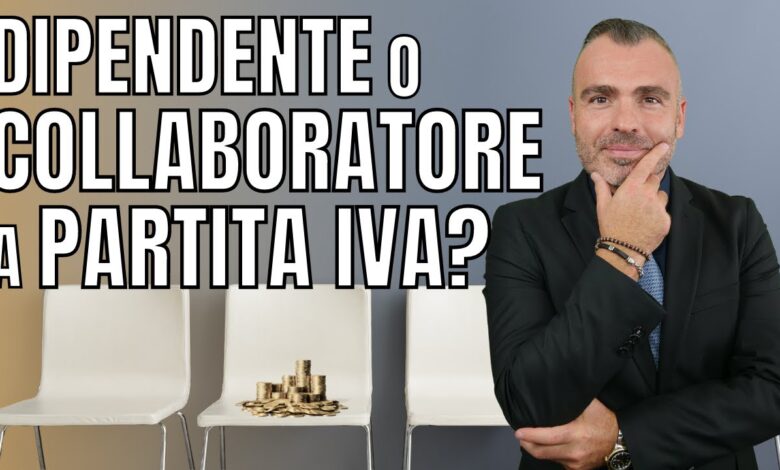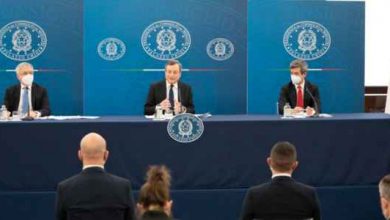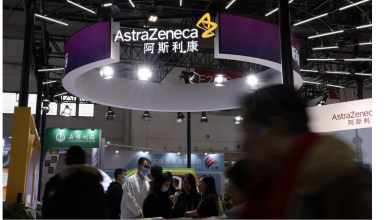
Are you a craftsman and owner of a sole proprietorship, but for some years you have been working frequently and mainly for a single company? So you wonder if anyone with a VAT number can be hired as  employee. The company is also asking the same question, but in the opposite perspective, because they would like to avoid hiring you to save costs.
employee. The company is also asking the same question, but in the opposite perspective, because they would like to avoid hiring you to save costs.
The question concerns both the formal profile and the substantial aspect. In general, it is not possible to hire a subject with a VAT number as an employee, because the two different qualities of self-employed worker and employee cannot coexist in the same person, except in cases of total diversity of the tasks performed in the respective areas, without any mutual interference. Conversely, those who are already private employees can - if the employment contract does not forbid it - open the VAT number to carry out professional business activities, provided that this takes place outside working hours and without competition with the company to which they belong.
In concrete terms, some employers try to get around the obstacle by looking for workers who already have a VAT number, so as not to have to pay social security contributions, severance pay and other allowances provided for employees, and to be able to terminate the relationship without the formalities required for dismissal. But if this trick is discovered, the consequences are serious: as demonstrated by a very recent order of the Labor Section of the Court of Cassation [Cass. ord. no. 22846 of 21.07.2022] which recognized the existence of a relationship of subordination of some artisans, owners of sole proprietorships, who in concrete terms were subjected to employer directives, carried out elementary and repetitive tasks and received wages on an hourly basis. In these cases, those with a VAT number and appearing as a self-employed worker, but essentially operating as an employee, can apply to the labor judge and request recognition of all the rights due to the employee.
When the employment relationship?
The employment relationship has the typical characteristics indicated in theart. 2094 of the Civil Code: the employee "undertakes himself through remuneration to collaborate in the company, providing his intellectual or manual work employed and under the direction of the entrepreneur".
As we anticipated at the beginning, many companies, to avoid hiring, resort to various forms of external collaboration contracts, which in reality disguise employment relationships. To unmask these phenomena, and recognize the rights of workers, the jurisprudence resorts to a presumption of subordination, which occurs when certain indicators revealing the existence of a subordinate employment relationship occur.
From what can it be deduced that a VAT number carries out subordinate work activities?
 In the new case decided by the Court of Cassation[1], the presumption of subordination was recognized in the fact that the work performance is «extremely elementary, repetitive and predetermined in its execution modalities»; moreover, "the subjection of the service provider to the exercise of the managerial, organizational and disciplinary power" of the employer had emerged.
In the new case decided by the Court of Cassation[1], the presumption of subordination was recognized in the fact that the work performance is «extremely elementary, repetitive and predetermined in its execution modalities»; moreover, "the subjection of the service provider to the exercise of the managerial, organizational and disciplinary power" of the employer had emerged.
It was also found that those craftsmen - formally VAT registered - did not even have a minimal entrepreneurial organization, as it was the company they worked for that provided them, from time to time, with the necessary tools; finally, the methods of payment of the remuneration were established on an hourly basis, rather than in relation to the services performed. For some time, the jurisprudence has held that thetime obligation constitutes one of the main indicators revealing the subordination of the employment relationship.
Interestingly, evidence of subordination can be provided by any means permitted in the process of work: from the testimonies of colleagues to chat on Whatsapp with the boss and superiors. The important thing is that the continuity of the work performed emerges, the obligation to be present in the workplace, or to be available, in the established time slots, the stable and effective inclusion in the company organization, the full and constant submission of the subject the employer's directives and a fixed, periodic and predetermined remuneration based essentially on the working hours performed.
When can VAT number and employee relationship coexist?
Apart from the phenomenon of fictitious or convenient VAT numbers, created to disguise what is actually a real subordinate employment relationship, there are cases in which the VAT number and the employee employment relationship can coexist. In these cases there is no wrongdoing on the part of the employer like the ones we have examined, and the situation is legitimate for both parties.
For example, those who are already employees can open a VAT number if it is necessary for carrying out an entrepreneurial, commercial, artisanal, professional or artistic activity that does not compete with the work carried out as an employee of the company, and if the employment contract does not forbid it; in fact theart. 2105 of the Civil Code imposes an obligation of loyalty on the employee. Otherwise, in the event of competition between the activity carried out as an employee and that carried out with a VAT number, one can be fired for just cause. For the civil servants even more stringent rules apply [2], which prohibit from the outset the performance of certain activities considered incompatible with the nature of the public functions exercised but allow them in certain cases, such as that of teachers who can also practice the profession.
For more information read:
- when does self-employment become subordinate?;
- Can anyone with a VAT number be an employee?;
- opening a VAT number with an employee: when is it possible?;
- employee and VAT number for the same company: is it possible to do this?;
- VAT number: is it always mandatory?.
written by Paolo Remer | 25/07/2022 – the law for everyone
Cass. ord. no. 22846 of 21.07.2022.
Legislative Decree no. 165/2001.
 Editor's note: The profession of Pharmaceutical Representative is regulated by Legislative Decree 219/06, in particular the art. 122 traces its requirements and activity. In paragraph 3 it says that "The activity of scientific representatives is carried out on the basis of a employment relationship established with a single pharmaceutical company. By decree of the Minister of Health, on the proposal of AIFA, derogations from the provisions of the previous period may be envisaged, due to the size and characteristics of the companies”.
Editor's note: The profession of Pharmaceutical Representative is regulated by Legislative Decree 219/06, in particular the art. 122 traces its requirements and activity. In paragraph 3 it says that "The activity of scientific representatives is carried out on the basis of a employment relationship established with a single pharmaceutical company. By decree of the Minister of Health, on the proposal of AIFA, derogations from the provisions of the previous period may be envisaged, due to the size and characteristics of the companies”.
Although the agency contract is widespread, the ISF are not and cannot be commercial agents (see sentence of the Cassation n. 19394/2014), in the sense that they do not conclude, and cannot do so due to the laws in force, sales contracts.
L'art. 69-BIS of Legislative Decree no. 276/2003, unless proven otherwise by the client, establishes that the services provided by persons with a VAT number are reclassified as employment relationships (false VAT numbers) if At least two of the following conditions:
- The collaboration with the same client has a total duration of 8 months per year for 2 consecutive years (letter a - time criterion);
- The fee deriving from this collaboration, even if invoiced to several subjects attributable to the same center of attribution of interest, constitutes more than 80% of the total annual fees received by the collaborator over the course of 2 consecutive calendar years (letter b - turnover criterion);
- The collaborator has a fixed workstation at one of the client's offices (letter c - organizational criterion).
It is evident that the isf agent working for a single client (multi-mandates must be authorized by the Ministry of Health) and the consideration they receive comes from a single "customer" cannot by law be VAT numbers
If the aforementioned indexes exist and in the absence of proof to the contrary, the self-employment relationship with a VAT number must be reclassified into a permanent employment relationship, pursuant to articles 61 and 69 of Legislative Decree no. 276/2003.
The inspection bodies will also have to, during the requalification of the employment relationship, draw up the single assessment report to be sent to INPS and INAIL, for the recovery of contributions and bonuses and determine the administrative pecuniary sanctions for non-fulfilments.
Related news: False agent contract. …and false VAT numbers
False VAT numbers. Two emblematic sentences
Open letter from a reader. ISF false VAT numbers. Ed





